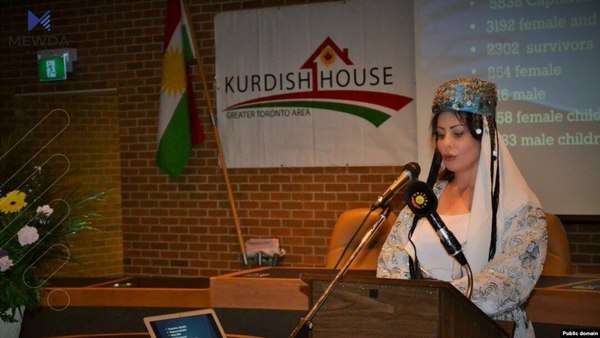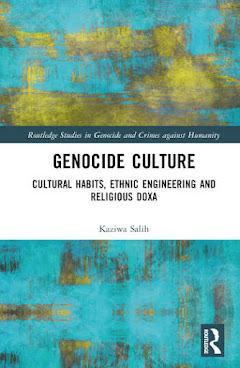کازیوە ساڵح
ڕاپەڕینی جەماوەری دژی ڕژێمی پاوانخوازی
ئێران بە قووڵی بزوێنەرە، چونکە ئەوە نیشان دەدات کە مرۆڤەکان چۆن دەگەنە خاڵی
شکاندن لە داواکاری ئازادی وپاراستنی کەرامەتدا، مرۆڤ چەند بێ دەنگ بێت و سەر
شۆڕبکات دواجار هەر جامی پڕ دەبێت و یاخی دەبێت . کەچی لەناو ئەم ساتەوەختی ئومێددا،
نادادپەروەرییەکی قووڵ دەمێنێتەوە: کورد ئەو ئاسۆی سیاسییە پێنادرێت کە شایەنییەتی.
لە کاتێکدا زۆرێک لە ئێرانییەکان ئایندەیەی دوای کۆماری ئیسلامی خەیاڵ دەکەن، بەڵام
جێگرەوەیەکی دیموکراسی یان فرەیی ڕاستەقینە
پێشکەش بەو گەلانە ناکەن کە زۆرترین تێچووی دەوڵەتیان لە ئەستۆ گرتووە.
لە ڕووی مێژوویی ولە ئەمڕۆشدا کورد هەم قوربانیی یەکەمە و هەم شۆڕشگێڕی
یەکەمە. ئەوانەن کە بێ چەک بەرەو گوللە دەڕۆن و لە بەرەکانی پێشەوە دژی سەرکوت دەوەستن
و ڕووبەڕووی قورسترین توندوتیژیی دەبنەوە. کەچی کاتێک گۆڕانکاری دەبێتە شتێکی خەیاڵ،
تەنانەت قوربانیدانەکەیان داگیر دەکرێت- لە پرۆژەیەکی ناسیۆنالیستیدا هەڵدەمژرێت کە
جارێکی دیکە خواستە سیاسییەکانی کورد پەراوێز دەخات.
دەرئەنجامەکەی پارادۆکسێکی دڕندەیە: خەباتی
کورد کرانەوەی سیاسی بەرهەم دەهێنێت، بەڵام ئایندەی کورد بە نادیاری و نائاسایش دەمێنێتەوە.
لە زۆربەی ئۆپۆزسیۆنی ئێراندا، هیوای باڵادەست بۆ نەزمێکی دیموکراسی نوێ نییە، بەڵکو
بۆ فۆرمێکی ڕیسایکلکراوی پاوانخوازی ناوەندییە- گەڕانەوەی نۆستالژیکانە بۆ دەوڵەتێکی
شاهانە یان ئێرانیزمێک کە لە بنەڕەتدا لە جیهانی سیاسی ئەمڕۆدا بەسەرچووە.
بەبێ ئەڵتەرناتیڤێکی ڕاستەقینە و فرەیی،
گۆڕینی ڕژێم تەنها گواستنەوەی دەسەڵات دەگەیەنێت-
لە پاوانخوازێکی خاوەن عەمامەوە بۆ پاوانخوازێکی
سەر ڕووت و هیچی دی. بەڵام کێشەی کورد لانی کەم بیست دەچیتە دواوە . لە گەڵ
سیستەمی نوێ لە خاڵی سفرەوە دەست پێدەکرێتەوە و دەست دەکاتەوە بە قوربانی دان و تۆمارکردنی
نادادی و کوشتن و قڕکردن.
لە لایەکی دی لە میانەی ناسەقامگیری سوریا و تورکیا و هێزی کشاوی ڕوسیا لەم کاتەدا
لە بەرژەوەندی ئیسرائیل و ئەمەریکا نیە مامەڵەی لە گەڵ ئێران بکەن، بۆیە هەر وەکو
جاری پێشوویش هەمان ڕام هەبووە، بە گریمانەی زۆرەوە ئەم جارەش شؤڕشی سەرشەقامەکان
دەچنەوە ماڵەوە و دوا دەکەوێت بۆ کاتێکی گونجاوتر.
لە هەموو دۆخێکدا کورد لە ڕۆژهەڵات نە شەڕ لە گەڵ ئێران و نە دواکەوتنی شا خزمەتی
دەکات و بژاری دروستر ئەوەیە کە وازی لێ بێنن بۆ گەلی ئێرانی ئەوانەی هەموو
شۆڕشەکان و کولتووری کوردیان دزیوە تەنانەت بە ناوی قوربانیەکانیشەوە ، هەوەکو چۆن
ناوی ژینا یان ۆڕی بۆ مەهسا ئەمینی. بۆیە گوناحە کورد لەم دۆخەدا خوێن لە پەنجەی
بێت بۆ ئەوەی ئاخوندە بڕۆخێت و نەوەی ئەو پیاوی تیژی شمشێرەکەی بە جەستەی کورد تاقیکردوەتەوەبیرم
نەماوە لە چ کتێبیکدا خوێندمەوە کە باوکی ڕەزا شا، کاتێک شمشێرەکەی تیژ دەکرد بۆ
ئەوەی بزانێت زۆر باش تیژ بووە ، داوا دەکرد کوردێکی بۆ بێنن ، کاتێک ئەو
شمشێرەکەی گرتووە بە نێودا ڕابکات، ئەگەر دوو کەرتی بکات تیژە. ئەم گێڕانەوەیە
ئەگەر تەنانەت ڕاستیش نەبێت ئەمڕۆی ئێران دەریدەخات کە دەبێت بە ڕاستێکی بە سەردا
سەلمێنراو.
لە سەروو هەموو ئەمانەشەوە ئیستای ئەمەریکا،
کە ئەمڕۆ نەک تەنها ئەمەریکا بەڵکو زۆربەی خوارووی ئەمەریکا لە لایەن سعودییەوە
کراوە، بۆیە مافی بڕیاردانیان هەیە لەو وڵاتەدا، وە لە داهاتووی نزیکدا لە هێزی
ناوەندی دەچنە ڕێزی هێزی یەکەم ، هێشتا لە ناوەندیدان کوردیان بە جینۆساید سپارد.
ئەمە دەگات بە باشوور و بەشەکانی دیش. لەو دۆخەدا بەرژەوەندی کورد ئەوەیە لە گەڵ
ڕوسیا و بەرنامە ئەتۆمێکەی هاوپەیمان بێت.
گەرچی لە بنەمادا کورد بژارێکی دی نیە جگە لەوە.
دروسترە هەموو وزە کوردستانیەکان لە ئێستادا تەنها لە سەر ڕۆژئاوا بێت . ئەوەی لە
سەر ڕۆژهەڵات دەمێنێتەوە جگە لەوەی ئەو شەڕەیە بە نیازە لە ئێران بیکات بباتە
ڕۆژئاڤا، وانە وەرگرتنیشە لە ئەزموونی ٢٥ ساڵی ىاشوور و ١٥ ساڵێ رۆژاوا سەبارەت بە
وەهمی پێکەوە ژیان و برایەتی. لێرەدا
ئەرکە لە ئێستاوە دەسنیشانی لیستی ئەو جاشانە بکات کە پرۆفیسۆر و خوێندەوار و
سیاسی و نووسەرەن . ئەوانەی کە سیمناریان
دەکرد لە نێوان دوو کەوانەدا دەیانووسی تەنها بۆ ڕۆژهەڵاتیەکانە ، دەیان بێگانەیان
بانگ دەکرد نەک کوردی پارچەکانی دی ، چونکە دەیانوویست تەنها فارسی تێدا بێت و
ئافەرینیان بکات لە سەر ئەوەی شەڕییان بۆ پێکەوە ژیانی گەلانی ئێران دەکرد، ئەگەر
بەشەکانی دی تیدا بوایە ( ئەوانەیان نەبێت وەکو خۆیان بوون) ڕووبەڕوویان دەبوونەوە
و دەیانخستنە ژێر پرسیارەوە. ئەوانەی چەندین ساڵە ڕۆڵەی کورد لە ناوەوە خۆی بە
کوشت دەدات و ئەوان لە دەرەوە دەقۆزنەوە بۆ خۆ نزیکردنەوە لە کوڕی شا و دەیان وکورد
خەون بە وەزارەتی شاوە دەبینێت.
بەر لەوەی ئێران بڕوخێت کورد ڕۆژهەڵات پیویستی بەوەیە بەرنامەڕێژی یەگرتن و
هاودنگی بکات بەڵام جاش و باشیش تیکەڵ نەکات. ئەمە هەڵەی بەشەکانی دئ و ئەو
چارەنووسە خوێناویەش ئێستا ڕووبەڕووی بووینەتەوە.




























